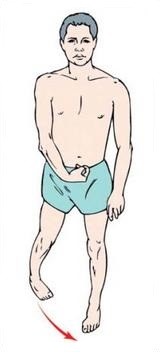Diagnosis of HSP is mainly based on neurological examination to rule out other disorders. Magnetic resonance imaging (MRI) of the brain may reveal structural abnormalities, such as thin corpus callosum often seen in some complicated types of HSP. Symptoms may begin to appear in childhood or in adults, depending on the specific gene involved. Several genetic mutations have been identified in dozens of genes associated with various forms of HSP, which manifest themselves in different modes of inheritance.
From the above, it is understandable the particular clinical value of genetic testing for these diseases, as it would confirm the clinical diagnosis by excluding other disorders with a similar clinical picture, will aid in disease prognosis, will allow proper reproductive planning and carrier detection in the family, while it will also end the diagnostic odyssey by providing informed decisions about possible treatment.
o the extent that single-gene testing for HSP is highly inefficient, InterGenetics has developed and offers an NGS panel for the genomic analysis of 65 genes, which we now know to be associated with all types of HSP and related disorders, irrespective of the mode of inheritance.
| ABCD1 |
ALDH18A1 |
ALS2 |
AMPD2 |
AP4B1 |
AP4E1 |
AP4M1 |
AP4S1 |
AP5Z1 |
| ARL6IP1 |
ATL1 |
B3GALT6 |
B4GALNT1 |
BSCL2 |
C12orf65 |
C19orf12 |
CAPN1 |
CCT5 |
| CPT1C |
CYP2U1 |
CYP7B1 |
DDHD1 |
DDHD2 |
ENTPD1 |
ERLIN1 |
ERLIN2 |
FA2H |
| FARS2 |
GAN |
GBA2 |
GJC2 |
HSPD1 |
IBA57 |
KDM5C |
KIAA0196 |
KIF1A |
| KIF5A |
L1CAM |
MAG |
NIPA1 |
NT5C2 |
PAX3 |
PDHX |
PLP1 |
PNPLA6 |
| REEP1 |
RTN2 |
SLC16A2 |
SLC2A1 |
SLC33A1 |
SPAST |
SPG7 |
SPG11 |
SPG20 |
| SPG23 |
SPG21 |
SPG29 |
SPG7 |
STXBP1 |
TECPR2 |
TFG |
TTR |
VPS37A |
| ZFYVE26 |
ZFYVE27 |
|
|
|
|
|
|
We perform DNA sequence analysis, via Next Generation Sequencing (NGS) on a Genome Analyzer – Ion Proton platform, of all exons and intron-exon junctions/splice sites of the 65 genes, allowing us to detect >98% of all pathogenic mutations of the genes through the use of specially developed bioinformatics tools.
Where possible and/or necessary, we carry out additional MLPA analysis in order to detect deletions/duplications of the genes (please consult the final test report).
The test is highly sensitive and complex, so it is necessary that the results are assessed by a specialized team of clinical and molecular geneticists, in order to ensure safe and reliable testing.
Proper clinical genetic assessment and genetic counseling, both before and after testing, is essential in order to determine the optimum testing strategy and also to communicate properly the concepts of pathological and normal


